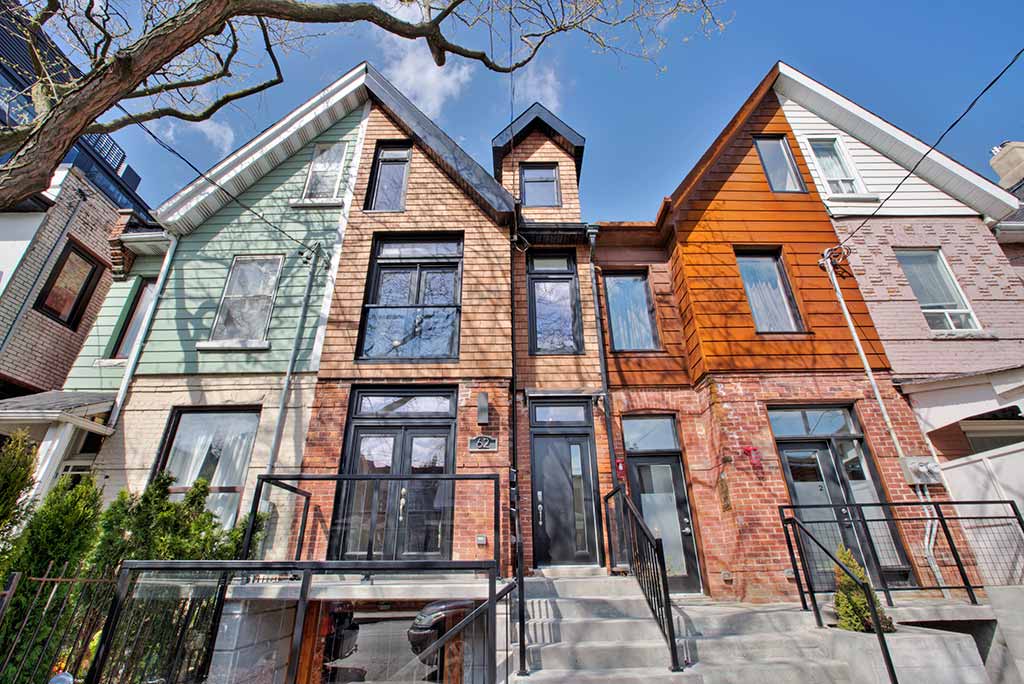Has The Toronto Bubble Finally, Popped?

Thinking of buying investment property? In a market like the Toronto real estate market, investing in residential real estate is always a hot topic. It’s one of those things that many people have an opinion on, but there are few who really understand.
Deciding to make an investment in the Toronto real estate market is exciting, and at the same time, completely overwhelming. The first step to purchasing your investment property is to find a realtor who will help guide you through the process from start to finish. The Toronto Real Estate Board (TREB) has over 43,000 members made up of brokers and sales representatives – this makes it difficult to find the right fit. That’s why you should start with interviewing a realtor and ask key questions, such as:
This is a good starting point when you’re looking for a real estate agent to work with. They should practice what they preach and when they give advice, it’s always best if what they’re offering is based on personal experience. After all, it’s your hard-earned money that we’re talking about here.
I like to think of it this way – would you take swimming lessons from someone who’s never swam before?
Toronto is a big city, and there are many types of investment options across varying residential asset classes that you can invest in – ranging from pre-construction condos, to resale condos, to single family homes or multi-unit properties. Of course, there are pros and cons to investing in any of these asset classes. Therefore, the greatest return you can get from investment property is when you’re able to make a long-term investment.
While there are many investment property opportunities in the Toronto real estate market, it’s not a get rich quick scheme. Instead, it should be approached from a 5- to 10-year outlook. When you’re deciding on which type of asset class to focus on, it’s important to consult a mortgage broker so they can provide you with a solid understanding of what is actually possible from a financing standpoint. More than this, it’s helpful if your chosen realtor and mortgage broker have good communication. This way, your realtor can put together a pro forma that is based on the mortgage brokers’ numbers, combined with the property’s rental income and expenses – whether real or projected.
There are three things to keep in mind when you’re buying investment property in the Toronto real estate market.
1. Know the numbers. Unlike buying a home, investing in real estate should first and foremost be a logical decision. Ask yourself – do the pro forma and numbers make sense? Can I afford to make this investment? What is the cap rate and rate of return? Are the projected rents and expenses accurate? What are the tax implications? These are valuable questions to ask when making any real estate investment. It’s also important to be comfortable with reading pro forma documents and spreadsheets. This is where finding a good real estate agent comes to play, in addition to having your mortgage broker and accountant double checking the numbers. You should have a firm grasp on both the potential upsides and downsides of making an investment.
2. Know the area. You’ve probably heard the old saying, that the three rules of real estate are – location, location, location. When you’re considering the return on investment with property, it is essential that you understand the present and long-term potential of the area you are making the purchase. This is part research and part gut. From a research perspective, ask yourself – what are the area’s demographics (income) and which way is it trending? Is there a plan for future transit, infrastructure, development, or new amenities to be developed? Sometimes, you can walk into a neighbourhood and just feel that it is on the upswing. It’s always a good decision to do a gut check when you’re making a long-term investment decision.
3. Know yourself. With the Toronto real estate market, everyone from your hair dresser to the barista at your local coffeeshop will likely have an opinion. From telling your friends and family that you are considering buying an investment property, to picking up a paper or reading a blog post, it becomes an overwhelming amount of information. So, do your own research, find your team, and create your own truth. Trust yourself, your judgment, and your gut.
Having been a real estate broker and investor for decades in Toronto, the only regret anyone has ever had was listening to others and not getting in the market when they had the chance to years ago. Now’s your chance.
—
This article is written by Ralph Fox, Broker of Record and Managing Partner here at Fox Marin Associates. Ralph is a Torontonian native who recognized from an early age that the most successful people in life apply long-term thinking to their investments, relationships, and life goals. It’s this philosophy, along with his lifelong entrepreneurial drive and exceptional business instincts that have helped to establish Ralph as a top agent in the real estate market in downtown Toronto.